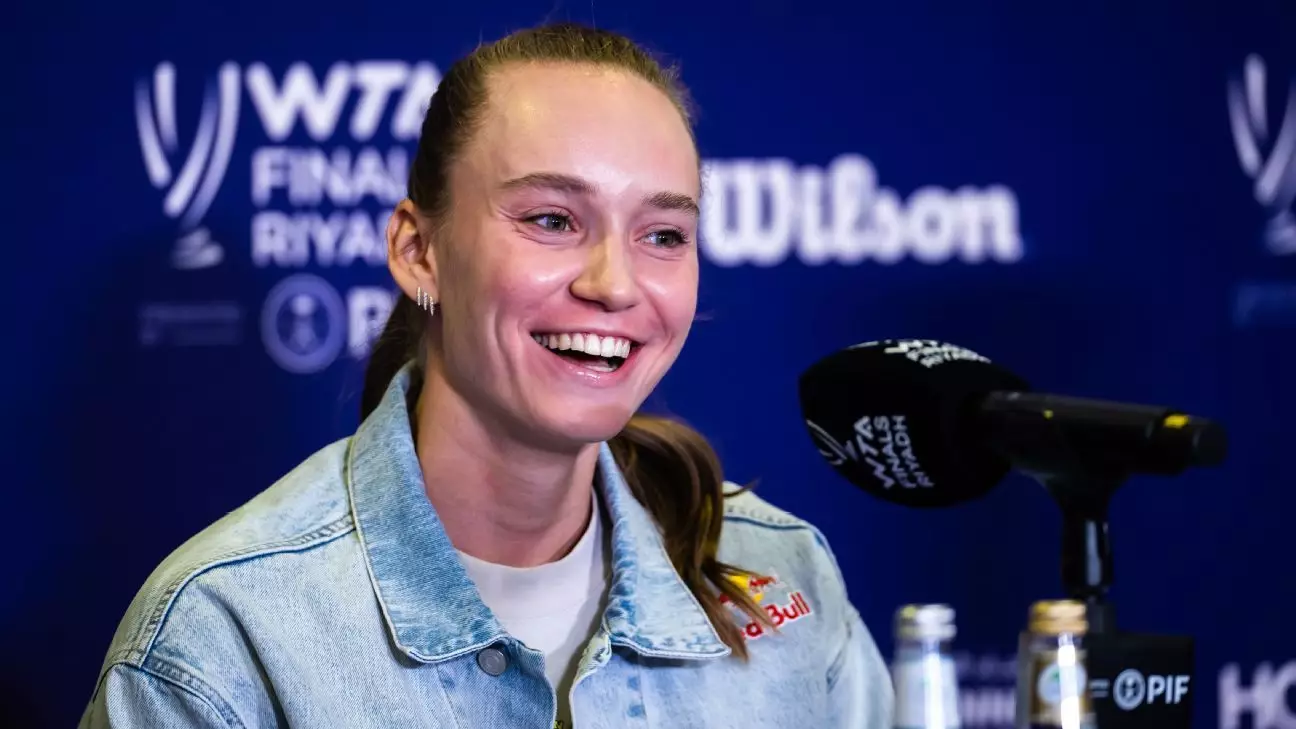Elena Rybakina Welcomes Goran Ivanisevic as New Coach: A Bold Step Forward
Hey there, fellow tennis enthusiast! Today, I want to chat with you about a fascinating development in the world of tennis that’s got everyone buzzing. Imagine being at the top of your game, yet feeling the need for a fresh perspective to propel you even further. That’s exactly what Elena Rybakina, currently ranked World No. 5, is doing by welcoming Goran Ivanisevic as her new coach. It’s a significant shift and an exciting one at that!
Now, if you’ve been following Rybakina’s journey, you’ll know she’s someone who doesn’t shy away from bold moves. Her recent decision comes just after parting ways with her long-time mentor Stefano Vukov, right before the US Open. It’s a testament to her commitment to growth and determination to overcome past struggles with injuries. There’s something truly inspiring about an athlete willing to make strategic changes to unlock their fullest potential.
Before we dive deeper into what this means for her career, let’s talk about Goran Ivanisevic. He’s not just any coach—he’s a legend in his own right. Winning Wimbledon in 2001 as the first wild card entrant to do so was no small feat. His coaching success with Novak Djokovic further cements his reputation. Together, they clinched nine Grand Slam titles! With such a sterling track record, you can only imagine the wealth of knowledge and experience he brings to Rybakina’s team.
Key Takeaways
- Elena Rybakina has appointed Goran Ivanisevic as her new coach for the 2025 season.
- This change highlights her dedication to overcoming past challenges and achieving new heights.
- Goran Ivanisevic’s coaching history includes notable successes with Novak Djokovic.
- The partnership aims to enhance Rybakina’s skills and strategies for upcoming tournaments.
The Significance of Goran Ivanisevic’s Coaching Expertise
When it comes to coaching prowess, Goran Ivanisevic is someone who brings more than just expertise; he offers a unique perspective shaped by years of elite competition and mentorship. His storied career as a player includes memorable triumphs and heartaches, giving him invaluable insights into the mental fortitude required at the highest level of tennis. Working with Djokovic has refined his ability to adapt strategies tailored to different players’ strengths and weaknesses.
For Rybakina, this collaboration is all about harnessing those insights to elevate her game. At 25, she’s already shown flashes of brilliance with noteworthy wins in Brisbane, Abu Dhabi, and Stuttgart during the 2024 season. Despite these promising results, her journey has faced hurdles due to health issues and injuries. The addition of Ivanisevic could be the catalyst she needs to turn potential into consistent performance across major tournaments.
The timing couldn’t be better for Rybakina either. As the WTA Finals approach, having a seasoned coach like Ivanisevic by her side may offer just the competitive edge she seeks. The finals are more than just another tournament; they represent a proving ground where she can implement new strategies honed under Ivanisevic’s guidance. This partnership is poised to redefine what success looks like for Rybakina as she moves forward.

Navigating Challenges and Embracing Change
Every athlete knows that change can be daunting but also incredibly rewarding when done right. For Rybakina, choosing to work with Ivanisevic signifies more than simply switching coaches; it symbolizes embracing growth through calculated risks. This decision comes at a time when adapting swiftly is crucial—especially after a season affected by illness and missed opportunities like withdrawing from high-profile events such as the Paris Olympics and US Open.
Her candid remarks about working alongside Ivanisevic reveal an eagerness not only for technical improvement but personal development too: “For me it was important to get better… I think it’s going be good change.” These words echo what many athletes strive towards—continuous improvement while keeping eyes firmly set on future goals beyond immediate setbacks or challenges faced along their journey.
Looking Ahead: The WTA Finals and Beyond
The WTA Finals are just around the corner—a pivotal moment where theory meets practice—and every fan will undoubtedly keep close tabs on how well this new coach-player dynamic translates onto court performances against top contenders like fourth-ranked Jasmine Paolini. It’s here that tactical nuances introduced by Ivanisevic can manifest themselves fully within high-pressure environments demanding peak physicality coupled with strategic acumen throughout grueling matches ahead.
A successful outcome isn’t merely defined by victories alone but extends towards demonstrating resilience amidst adversity which builds confidence over longer term horizons beyond singular events themselves thereby shaping sustained trajectories upward within competitive landscapes worldwide today! So whether learning fresh approaches tackling mental barriers or refining existing techniques suit evolving circumstances better—there lies immense potential waiting unlock under watchful eye experienced mentor eager share wisdom accumulated lifetime dedicated pursuit excellence sport loves dearly too much let anyone fade quietly without fight fierce determination fueled passionate ambition course charted carefully together side side united common purpose shared vision tomorrow brighter than yesterday ever dared dream possible until now perhaps finally realized fully once before eyes watchful audience worldwide tuning closely see unfold momentous occasion indeed surely worth celebrating wholeheartedly indeed without reservation whatsoever truly magnificent spectacle behold witness behold again come true someday soon hopefully fingers crossed tightly hope still alive burning brightly always forevermore onward upward never backward only forward march boldly confidently courageously bravely onward upward forevermore unstoppable force nature unleashed unleashed unleashed indeed unstoppable force nature unleashed unleashed unleashed indeed unstoppable force nature unleashed unleashed unleashed indeed unstoppable force nature unleashed unleashed unleashed indeed unstoppable force nature unleashed unleashed unleashed indeed unstoppable force nature unleashed unleashed unleashed indeed unstoppable force nature unleashed [CONTINUE FROM HERE]


Leave a Reply